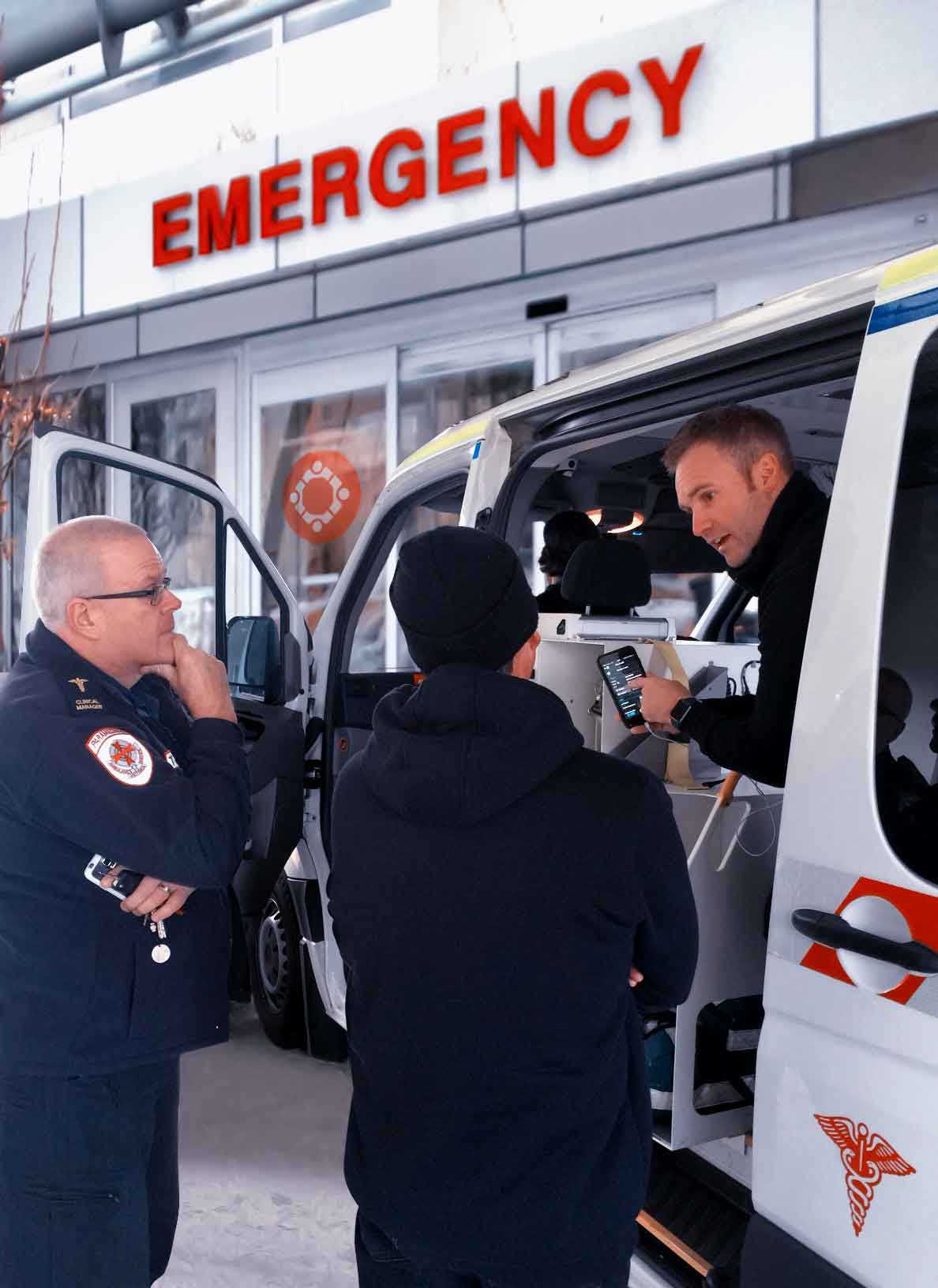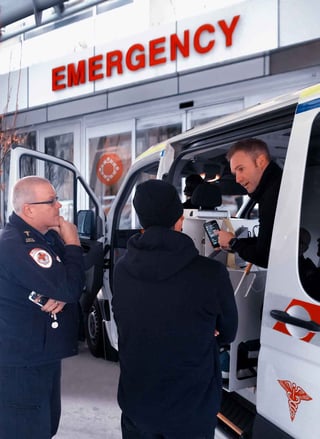Pulsara Around the World - February 2026
January Recap The start of 2026 was on the slow side for our events schedule, with our team heading to the Florida Fire & EMS Conference, the...

You chose this career.
Why?
Why did you go into public safety? Why did you go into healthcare? Why did you choose your specialty?
There are a number of possible reasons: Money. Prestige. Honor. Love. Fear. Anger. Hope. Adrenaline. Desire. Pressure. People.
Many of us in public safety and healthcare are just wired differently — especially those of us who deal with time sensitive emergencies. Imagine a group of people witnessing an emergency - a house fire, a car crash, a mass casualty event, a cardiac arrest, a sudden collapse, a STEMI, a stroke. If you were to watch their responses, you would see three types of people:
Why did you choose a profession where you run towards chaos? Why did you choose a profession where the stakes are so high and you cannot achieve your goals alone? A profession that requires a team to deal with the situation?
 We need to spend more time digging into these questions. Understanding your reasoning, your purpose, determines your happiness and job satisfaction. And, understanding your team’s purpose determines how you build your regional systems. There are many reasons why you choose to serve and these reasons often change over time, but ultimately you were driven into a profession whose fundamental goal is to serve people — not only the public or your patients, but also the people on your own teams.
We need to spend more time digging into these questions. Understanding your reasoning, your purpose, determines your happiness and job satisfaction. And, understanding your team’s purpose determines how you build your regional systems. There are many reasons why you choose to serve and these reasons often change over time, but ultimately you were driven into a profession whose fundamental goal is to serve people — not only the public or your patients, but also the people on your own teams.
When running towards the mayhem, it is your team who has your back and will help you manage the chaos. Therefore, it is critical that you communicate with and serve your fellow team members. It is pretty easy to serve the team members you see, but it is equally important to communicate with and serve the team members you don’t see - the people who will be taking over for you once your job is done, the team members that may not be on the front line but are supporting your efforts, and the team members that dealt with the situation before you.
Managing mayhem and chaos is stressful. Regardless of the outcome, we all need closure after one of these events. The event is bigger than any single individual or department and everyone who participated earned the right to have this closure. Imagine being a police officer, firefighter, medic, Emergency Department staff … and not knowing what happened to the person you were serving. We should close this loop and provide feedback in real time - not days, weeks, or months later. Providing this feedback will improve the quality, health, and morale of our teams and the individuals on those teams.
To accomplish all of this, we need a real time team communication platform across multiple entities.
I have my reasons for serving, and you have yours. Whatever drives you to run towards the mayhem, thank you for your service.
After all, it’s about people.
**Don't miss our related post: Patient-Centric Healthcare is a Failed Philosophy**

January Recap The start of 2026 was on the slow side for our events schedule, with our team heading to the Florida Fire & EMS Conference, the...

Recent research shows how Pulsara was successfully leveraged to connect more than 6,000 COVID-19 patients to monoclonal antibody infusion centers via...

At Pulsara, it's our privilege to help serve the people who serve people, and we're always excited to see what they're up to. From large-scale...